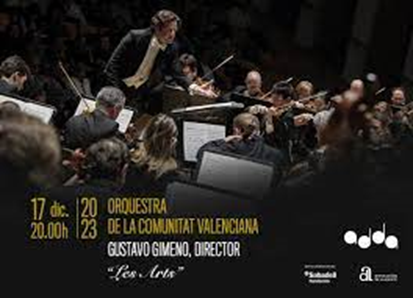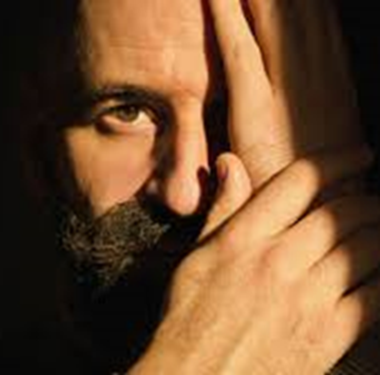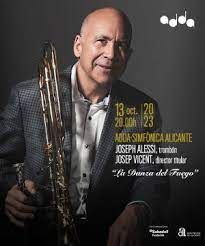Gustavo Gimeno conducted the Orquestra de la Comunitat Valenciana in the latest concert of ADDA’s Pasions season. The program juxtaposed two symphonies that were premiered about thirty years apart by composers who were both born in the 1860s. The contrast, however, was immense.
Composed almost at the end of Jean Sibelius’s creative life, the Seventh Symphony is much more revolutionary than it might appear at first sight. Its compressed form is perhaps more reminiscent of a tone poem than a symphony, but at twenty minutes duration, its single movement is longer than many eighteenth century symphonies that advertise multiple sections. And here there is a sense of development, even evolution as motifs come and go, resurface and transform in this seemingly organic form. The whole takes on the feeling of a valediction, with the trombones effectively waving goodbye, hardly animated, but certainly determined, to a creative life that was soon to be retired.
Sibelius’s Seventh Symphony is a very moving work, full of wonderful, slow textures, where sounds seem to melt at the edges as they brush past one another. The Orquestra de la Comunitat Valenciana under Gustavo Gimeno’s direction, played the work sympathetically, always keen to bring these textures to the fore.
Gustav Mahler’s First Symphony, by contrast, came at the start of his composing career. Its gestation was protracted, and the composer revised the score almost each time it was played during its first five years.
The result, however, is an often-played masterpiece. Only two of Mahler’s symphonies, the first and fourth, are of half concert length, and the fourth needs a soloist. This makes the first symphony the easiest of the composer’s output to programme, and so one feels that its presence might sometimes be perfunctory. An orchestra wants Mahler on its curriculum vitae, and the first offers the least resistance.
But there was no such pragmatism on show for Gustavo Gimeno and the Orquestra de la Comunitat Valenciana, who had clearly rehearsed the piece at length. Here we had a reading and performance that stressed detail and contrast. Mahler’s juxtaposition of light and heavy, light and shade, loud and soft, fast and slow were perfectly communicated and played. But this was no mannerist display of the possible for possibility’s sake. Here all the lines were well drawn, and the overall shapes made sense, musically at least, which is often not the case with this intentionally episodic work.
It was so detailed that the musical allusions came to the fore. The funeral march’s juxtaposition of popular song alongside Jewish celebration was clear and also stark, and it seemed to be delivered with the wry smile that no doubt the composer wore while writing it. Also evident was the similarity at one point to the Fifth Symphony’s Adagietto. Also notable in the scherzo, just before the contrasting slow trio, there stood out of figure in the cellos, just a series of repeated notes, that were lifted verbatim by Shostakovich into his fourth symphony. No perfunctory presence for this symphony for that great composer.
Mahler’s rousing finale was delivered by standing brass
and horns, but it was the whole orchestra that shone. Gustavo Gimeno was
careful to present each section of the band for acclaim at the end. They had
all deserved the applause.




























